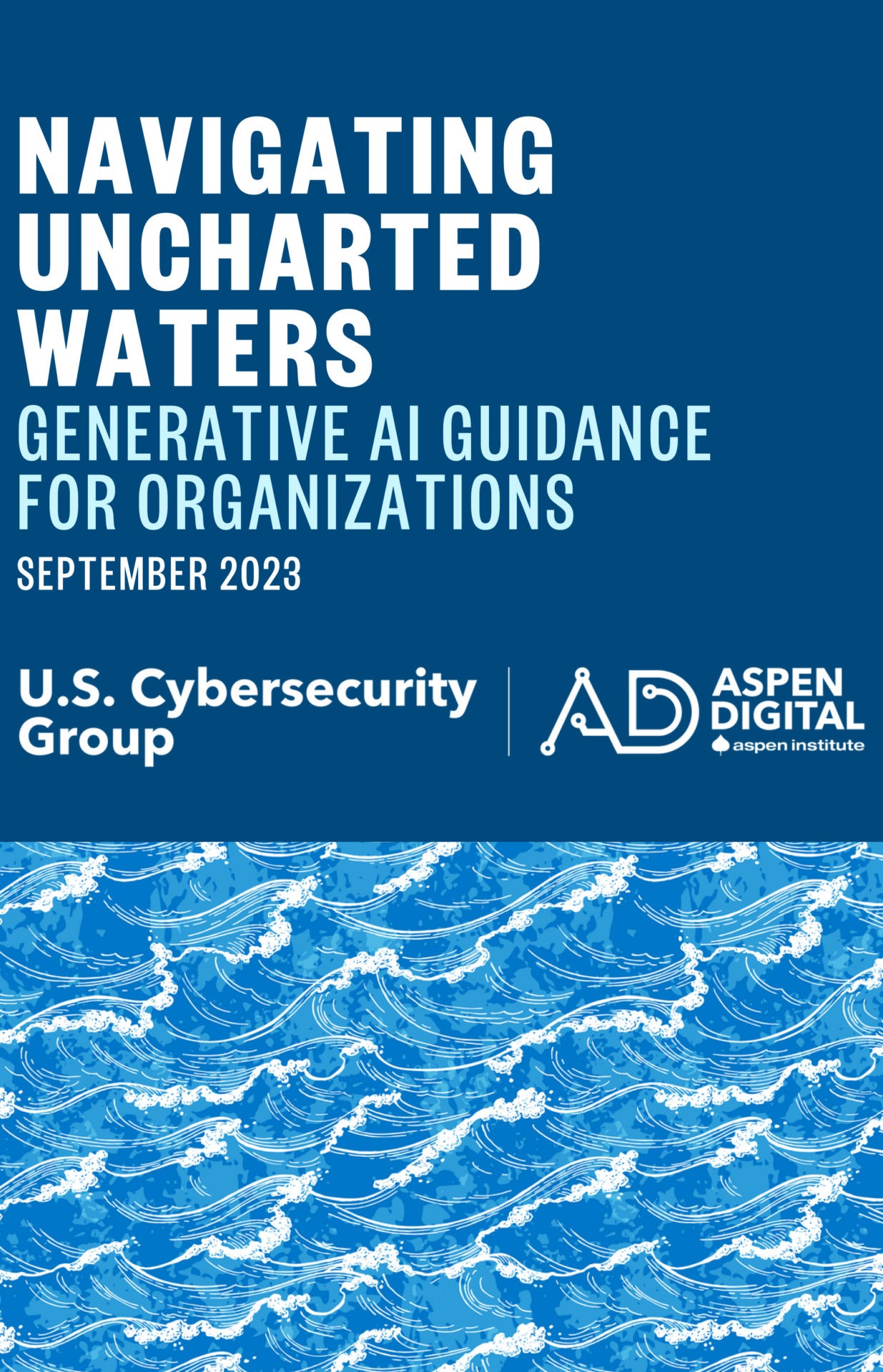In recent months, the growing use of Generative Artificial Intelligence (GenAI) technology – including general-purpose and publicly available foundational models like GPT-4, LLaMA, and DALL-E – has captured the public’s attention and dominated news headlines. It has also generated widespread concern about the potential consequences that could emerge from the rapid, unrestricted use of GenAI-based tools. While AI has been around for years, the public availability of large, general-purpose foundational models combined with a significantly lower barrier to access the power of those models is new. This has introduced risks and questions that public and private sector leaders are only beginning to consider.
To help add clarity to this rapidly unfolding conversation, the Aspen US Cybersecurity Group convened experts to draft high-level guidance on how companies can inform employee use of openly available GenAI technology. What follows is a template guidance document that the Group developed for use by a broad range of organizations. Organizations can revise to fit their specific needs and share with employees and business units that use, rely on, or are considering how employees can or should use openly available GenAI-based solutions (as distinct from use of company-approved GenAI enterprise products). The guidance is targeted towards general employee populations and is designed to serve as a baseline document for companies to adapt to fit their specific organizational needs. No organization should adopt it without first reconciling it against its own unique policies, procedures, and legal and regulatory guidelines.
Importantly, the guidance provided below is relevant as of this report’s publication in September 2023. The GenAI playing field is changing quickly, and before using this document, organizations should assess whether it is still relevant to their specific organizational needs and to the current state of technology, law, and regulation. We encourage organizations to use any portion of this guidance that is relevant to their needs and to modify it as they see fit. No attribution is necessary.


